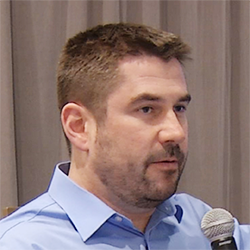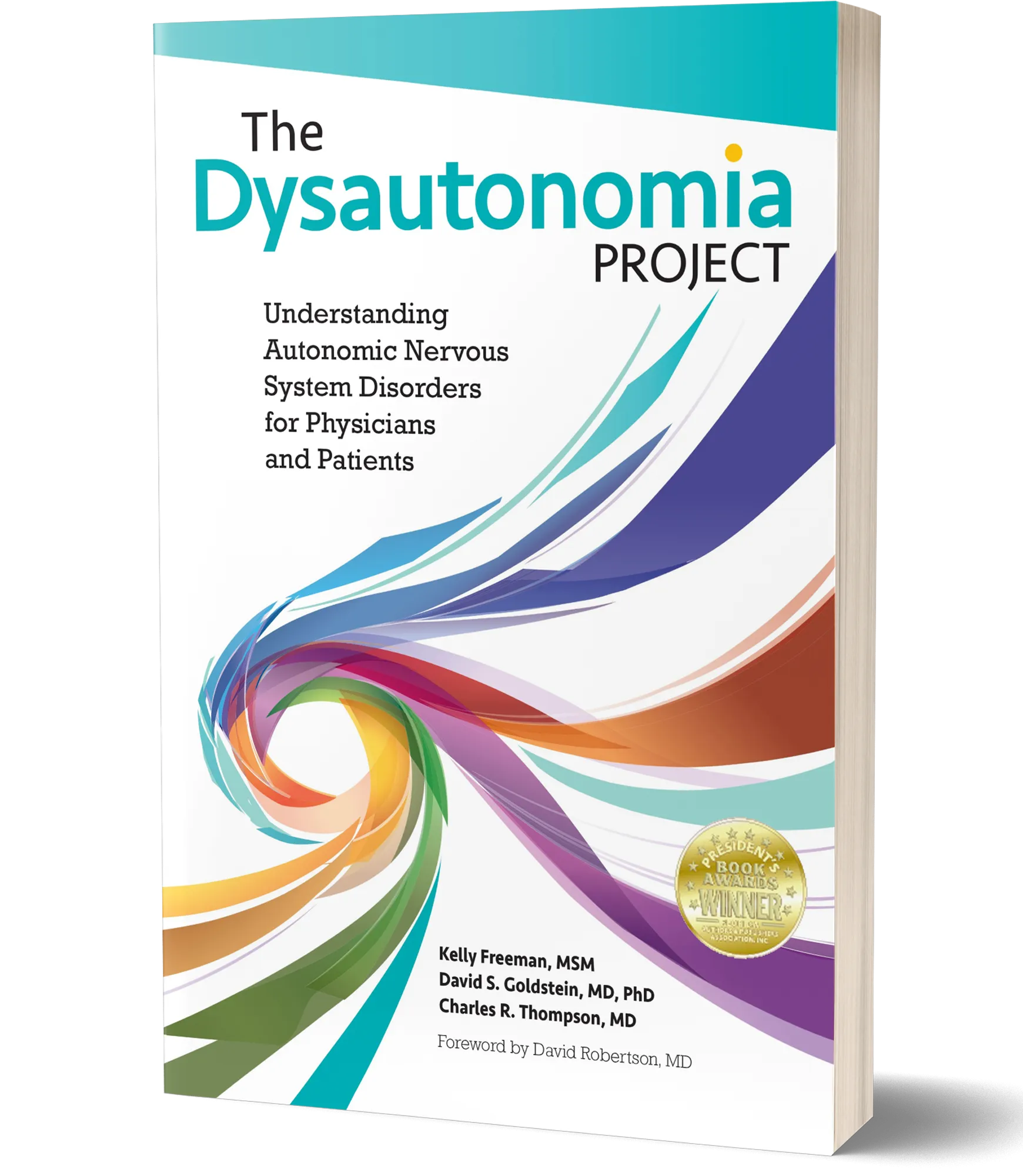
Recent Articles
In this video Dr. Fu discusses the importance and type of exercise helpful for POTS patients based on research at the University of Texas Southwestern Medical Center.
Mr. Al Ruechel: Hi everybody I’m Al Ruechel, continuing our discussion series you’re watching on your website right now we are talking about POTS. Specifically, the controversies about exercise. Joining me right now is doctor Qi Fu who is an expert on exercise, but not just exercise doctor, the kind of exercise to do. So, give me a little bit of your background.
Dr. Qi Fu: So, I was trained as a physician, a neurologist and practiced medicine for eight years in China and then I was very interested in clinical research and I started to spend another four years to get a PhD in autonomic neuroscience, after that I finished my post doc training in autonomic circulatory arrest or cardiovascular control with doctor Benjamin Levine in Dallas, Texas and after that I became faculty working at UT Southwestern medical center and also the institute for exercise and environmental medicine.
Mr. Ruechel: Now, what’s interesting about you besides you have great credentials is the fact that you were involved early on in this very very important study that said that exercise can help rehabilitate people suffering from POTS.
Dr. Fu: Yes, I was honored and lucky to be involved and that was fifteen years ago when I was just a faculty, junior faculty member, and we decided to do a study which was supported by the national institute of health to use exercise training as a medication, a nondrug medication for patients with POTS. So, the idea came from doctor Benjamin Levine’s space flight research because he has a long-term interest in space flight and he and his other researchers working with him they found astronauts when they returned from space they all had orthostatic intolerance or POTS like syndrome.
Mr. Ruechel: Yeah, that’s true, that’s true.
Dr. Fu: And they decided, especially in women astronauts, so they developed an exercise program and allowed those astronauts to exercise in space and when they came back and they showed improved orthostatic intolerance condition. So, the training program again was based on space flight research.
Mr. Ruechel: Yeah and I know Nicole Stott who was one of the astronauts from the Tampa Bay area and when I interviewed her several years ago, she talked about how important exercise was. Now, in terms of using it with people that have POTS, intuitively you say to yourself these are some people whose symptoms are they’re fatigued, they’re tired, so how all of a sudden did it get flipped and said well if you’re fatigued and you’re tired the answer is exercise?
Dr. Fu: That’s a great question. I think many times a physician will, everybody knows exercise is good, everybody should do exercise and some of the physicians after they see these patients, they would also recommend the patient to exercise, the question is how you do it. So, I think because these patients, without doing anything, just walking around will become very fatigued so, if you ask them to exercise, that makes them even more fatigued. So, the key point is in the initial, the very initial stage of exercise you have to make sure they are doing horizontal exercise so, without upright orthostatic stress. So, these patients many times they are fine when they are sitting around or laying down but they have more clear, clinical, symptoms when they are standing up or in the upright posture that’s because gravity pulls blood from the heart the central part of the body to the lower body and the heart has to work harder in order to maintain their blood pressure.
Mr. Ruechel: So, then what kind of exercises are they doing?
Dr. Fu: We recommend horizontal exercise for instance, rowing.
Mr. Ruechel: Ok, rowing I’m trying to think of horizontal, ok rowing.
Dr. Fu: Or recumbent bike, or swimming.
Mr. Ruechel: Oh ok.
Dr. Fu: And those kinds of exercises, and they have to start at low intensity and gradually increase the intensity and also the duration. You cannot ask them to start with high intensity and an hour training, that would not work. So, you have to make sure they start at a very low intensity and start with fifteen, twenty minutes in the beginning then gradually increase the frequency and the duration and gradually add upright exercise to the training package.
Mr. Ruechel: Right, it’s not like New Year’s Eve where you make a resolution, I’m now going to run eight miles a day and you get out there and you’re trying to do it. So, then the question now becomes, fine they exercise anecdotally you’ve seen people improve. Is there science to back up that exercise really can help mediate in these situations.
Dr. Fu: Yes, there are a lot of research studies published so far, including space flight related research and also research in patients with POTS just to give you an example. Ten years ago, fifteen years ago now we did a study as I mentioned that we measured these patient’s physical fitness level by doing, actually measuring the O2, oxygen uptake while they’re doing exercise or walking on the treadmill or sitting on the bike, doing exercise. We actually measured all of these numbers and we also measured their heart size, their blood volume, their heart function, brain function all these things and we have data to backup. We found that before training these patients have reduced VO2 peak just peak oxygen uptake which is an indication of physical fitness. And we looked below the seventy people age match and also these women, when you look at their heart with MRI and you can see that their heart is smaller compared to healthy below seventy people. Also, they have reduced blood volume and all these things can be seen in astronauts after return from space. In after training we did the three month exercise training, progressively increasing intensity in duration and we found that aft training 70% of the patients no longer met the criteria for POTS and their heart size increased significantly and blood volume was also increased and more importantly their peak oxygen uptake was also increased significantly.
Mr. Ruechel: Now, when you say exercise, so, does this need to be tailored by age and by each individual person?
Dr. Fu: That’s a great question that is right. So, we use age in the common way we use if it’s in the clinical setting or not in research setting, in the community setting we just always tell patients two hundred twenty minus your age is your supposed peak exercise heart rate and then we use 70%, 65-70% of that peak heart rate as a guideline patient to exercise, to reach that goal.
Mr. Ruechel: Now is there a possibility that exercise can exacerbate a situation and make it worse?
Dr. Fu: In the beginning it probably will make the patient feel worse because they will be exhausted, they will be tired and they will feel muscle sore and painful but gradually that exercise will make them feel much better.
Mr. Ruechel: Now, one thing about exercise too is it does require discipline and discipline might be one of those mind body things you have to go through if you figure out I need to be able to conquer this so I’m going to have to discipline myself to go exercise. But if you discipline yourselves in exercise it leads to discipline in many other areas too doesn’t it?
Dr. Fu: Yes, I think that’s exactly right. I think in the beginning for sedentary or even patient population to exercise it’s very difficult. So, it has to be done with physician’s supervision or a personal trainer’s help and gradually after a period of time they can develop that habit and then hopefully become part of their life just like they need to wash their face every day, they need to brush their teeth, hopefully exercise can become part of their lifestyle.
Mr. Ruechel: Right, exercise is survival folks, it’s not just a luxury. Just two quick things, what advice would you give to doctors that might be listening to this program right now in terms of what they need to know about exercise.
Dr. Fu: I would say doctors for sure exercise is probably one of the best medicines you should recommend to your patient, but the way they exercise need to be carefully thought through because you have to make sure they start training with horizontal position and not upright. Try to remove the impact of gravity and then for instance again rowing is one of the best exercises moves and also you need to monitor closely how the patients feel and adjust the program as needed.
Mr. Ruechel: Right, and one word of encouragement to patients if you’ve got one. What would you say to patients?
Dr. Fu: I would say hang in there it will make you eventually feel much better. I understand the initial months will be very difficult but if you could overcome the first months you will see significant differences in the second or the third months of training.
Mr. Ruechel: Doctor that’s great thank you for your time we really appreciate it.
Dr. Fu: Thank you so much for the opportunity.

Wolfgang Singer, MD
Associate Professor of Neurology
Mayo Clinic Rochester, MN




